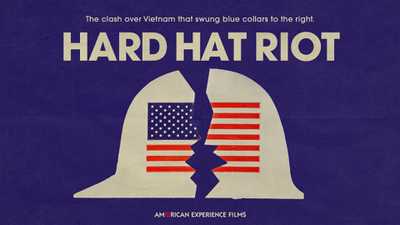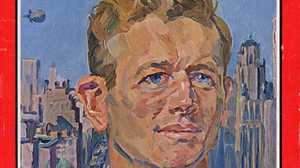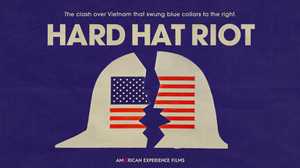These Are the Faces of the Hard Hat Riot
Wall Street, New York. May 8th, 1970. A bloody conflict that foreshadows America’s class and culture wars in the decades to come.
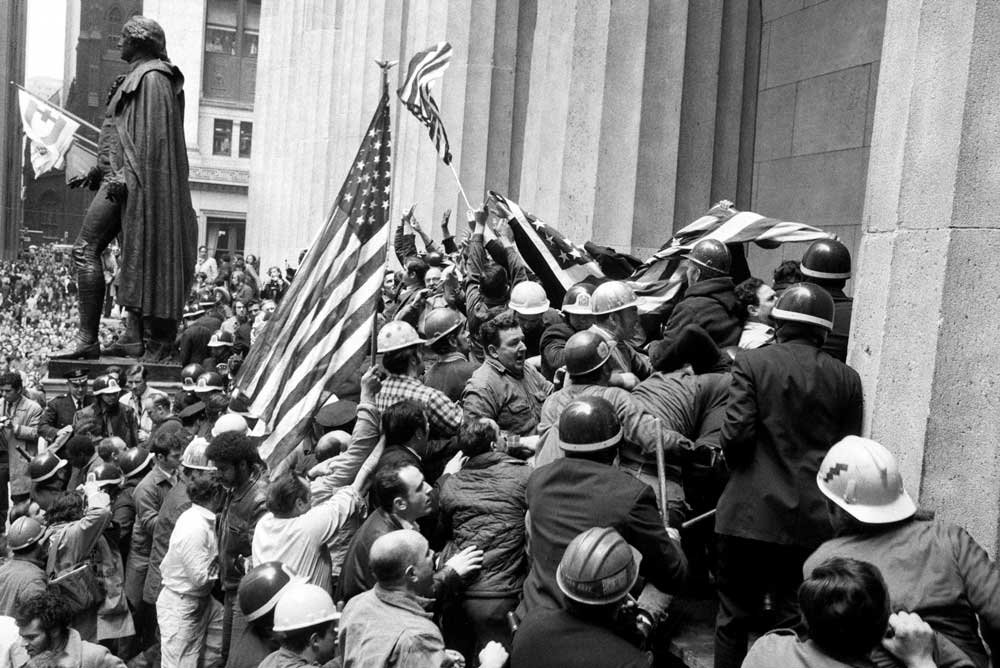
Word spread quickly among the tight-knit community of New York City construction workers on a Friday morning: the demonstrators downtown needed to be put in their place. Just days after the deadly shooting of student protesters at Kent State University, thousands of anti-Vietnam war demonstrators were planning to gather for a protest in Manhattan’s financial district. But just hours into the rally, the protestors were confronted by construction workers who quickly turned violent. The clash, later dubbed the “Hard Hat Riot,” exposed a widening cultural and class rift in American society. Now, more than 50 years later, the riot’s participants—former students, construction workers, office workers, and police alike—reflect on the currents that swept them together that day in May, 1970.
Meet the Players
My grandfather started us off in the business, and all his sons, his five sons, my uncles were steam fitters. It was something I wanted to do ever since I was a little kid. That's all I wanted to be was a steam fitter. - Bill Abbate, steamfitter
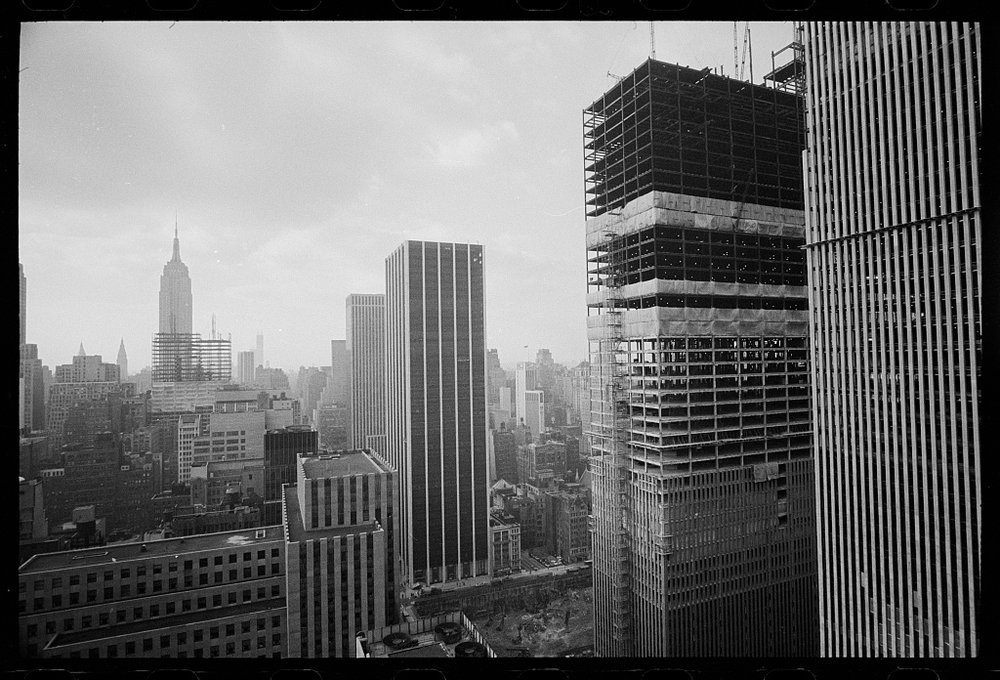
I worked on the 102nd floor [of the Twin Towers], and it was beautiful, it's so peaceful looking out, you know. Beautiful sunsets…Over on the World Trade Center, they would have the scaffolds on the outside. You’d be setting clips and believe it or not, you didn't have a harness on a safety on the scaffold. You were just on there, and you held on for dear life, let me tell you. - Dennis Milton, ironworker
As soon as I arrived at NYU, I basically became strongly anti-war. And what has struck me, as I've thought about this lately, is that my experience at NYU was a real radicalizing thing. So that, when the Cambodian incursion happened [on April 30th], I was already ready to be involved in a revolution. - Harry Bolles, student

I knew early on that I was going to go into the service. I knew early on I'd go into the Corps. I'd follow my father. My older brother went into the Navy. I thought it was something that you're supposed to do. What's a few years of your life? It was just in me. - Dan Rossi, sheet metal worker
As the war got deeper and deeper, I started wondering. The thing that really turned me around was I was already in college. I was at [a friend’s] house, and this cousin of his was serving in Vietnam. I asked him, ‘Well, what about the people that we’re helping?’ And he said, ‘They all hate us.” And that really made a very strong impression on me. It didn't make any sense. Why were we there? How could we be helping people that hated us? After that, I was pretty strongly against the war. - David Friedman, student
What bothered me is [the demonstrators] just couldn't stop. They're anti, anti. They were just against everything. They were knocking the system. They were all against everything the country stood for. They wanted to change it all around. - James Lapham, electrician
You would just have people go to college to beat the draft, especially young men. And that was an out for them at the time. So they took that route. And you have every right to protest. That's fine. But when it gets out of hand, somebody got to pay the consequences. And that's what happened that day. - Dennis Milton, ironworker
Kent State was very upsetting. At that point, it was like, they killed four kids, and what's next? Is it gonna be 20 kids, 30? Are they gonna just start firing weapons at demonstrators? - David Friedman, student
The Day Of
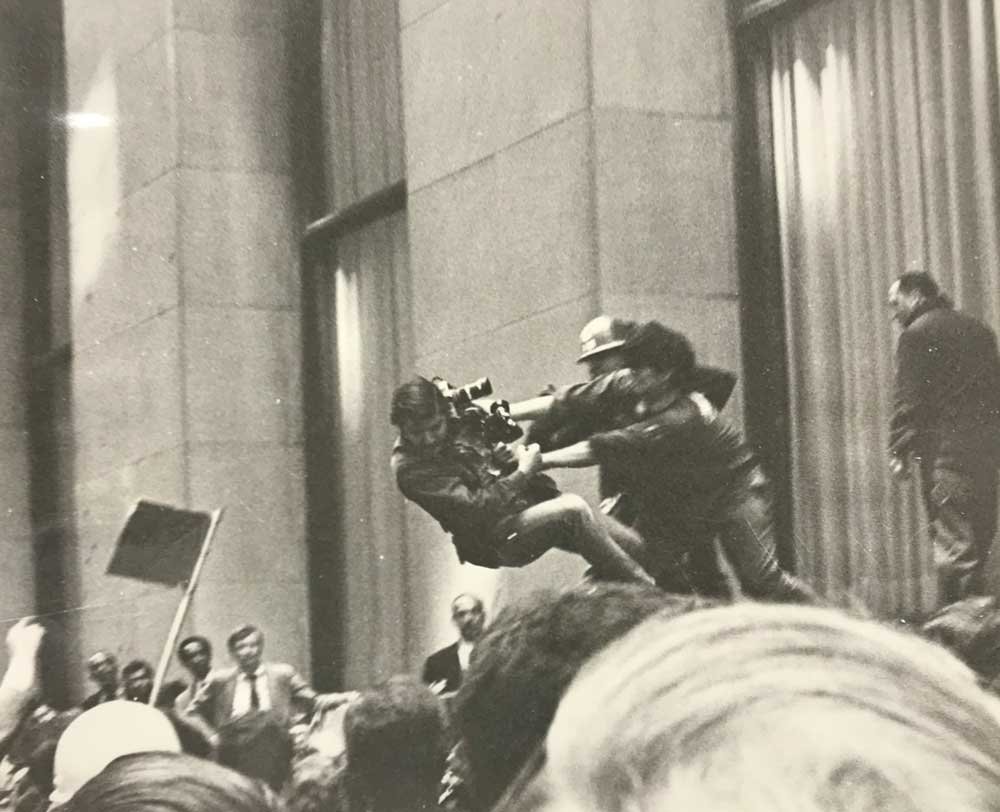
Seeing all these construction workers coming, and joining, and chanting, and looking at them, you know what's coming. You know there's going to be a fight. You know what's on their mind. Now, maybe it's not on their mind to beat people to death, but what's on their mind is coming in and taking some swipes at people. And that's what they did. - James Vermeulen, police officer
They went to war for the American flag, friends of theirs died over the American flag, and the idea that someone would come into Wall Street and try to damage or belittle the American flag was an unforgivable crime…they saw the flag as the symbol of the country, a country that they all came to, because of its opportunities and all of the rewards that they got for being here. They saw that as an attack on the country, almost a religious attack. And they just responded. They turned violent immediately… The culture is you defend the things you love. You stand up for them. - Michael Balzano, aide to President Nixon
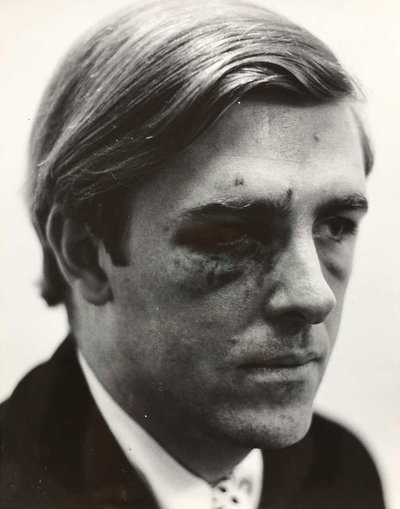
My office was on the back of a building away from Wall Street, but I could hear noise all morning. So I decided, it was lunchtime, I would go out and just check it out. There were lots of students, on the plaza. And then a bunch of construction workers came out of City Hall Park, across the road, and crashed in, attacked the students. I saw one of the students knocked on the ground and was being hit and kicked, so I went over and said, ‘Stop. He's hurt.’ And at that point pushed back to try to push them away from the kid, and that's the last thing I remember. - Michael Belknap, attorney
The student demonstrators were displaying the Viet Cong flag, which I certainly personally did not agree with, but there it was. And it definitely raised the temperature. - David Friedman, student
I saw the demonstrations downtown, and then I basically felt that something had to be done. There were burning [American] flags, and I served. And you don't have to agree with everything the government does, but you don't burn a U.S. flag, and you don't show an enemy's flag like they're the heroes, and that went beyond the call of most people in construction. I couldn't accept that. - James Lapham, electrician
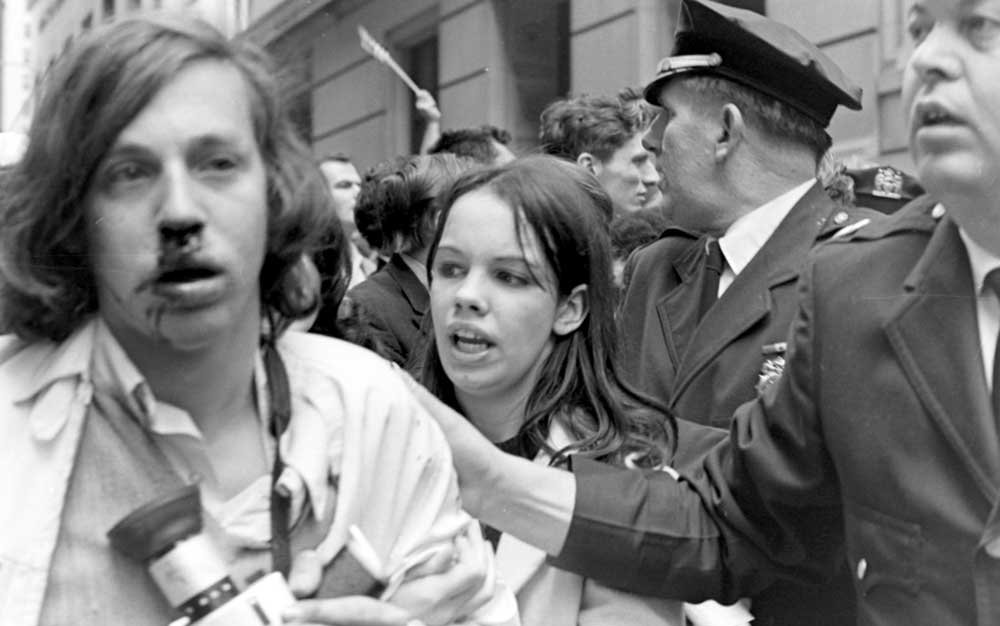
I was quite unaware that the day had already turned violent and that it was probably best for me to keep a low profile and just make myself as inconspicuous as possible, which probably was nearly impossible since at that point I had shoulder-length hair and was quite obviously, I had a target on my back, so to speak. And in my naivety, I showed [the construction workers] the peace sign, the V. And the next thing I knew, I never found out what hit me. - David Friedman, student
The Aftermath
I understand the hardhats' reaction to all these students demonstrating, burning flags, swearing. I mean, the construction workers had fought in Vietnam. They had children that fought in Vietnam. They had friends. They had a different view of it. And they were working hard while these other people were just goofing off from their point of view. So they had an anger that I understand…But May 8th, the Hardhat insurrection, and the after events combined were the most traumatic and life-changing event of my life. - Michael Belknap, attorney
When I got home that night, my wife yelled at me because I was late for dinner. But even all the fisticuffs we got in, my hands didn't hurt because it was like a message I was sending. And I hope they got the message to support America. - Dennis Milton, ironworker
I didn't understand how violent they could get. I was still in kind of the mindset that, you know, this is America, everybody can express their opinion, freedom of speech, but we don't get violent. So I was surprised…It was hard for me to feel a lot of warmth in my heart for [the construction workers] after that. - David Friedman, student

I ended up voting for Nixon [in the 1972 election]. It's just a sense at the time that things were turning. What was happening between the two parties, the Democrat Party and the Republican Party as to how they were moving in the future. - Bill Abbate, steamfitter
I was still at Georgetown when the riot occurred, and I watched the televised coverage of the riot with a close friend and graduate student. We came up with the exact same conclusion, that what we were looking at was the beginning of a class conflict, I think today that's developed into a class war. - Michael Balzano, aide to President Nixon
Interviews have been lightly edited for clarity. For more on how the Vietnam War exposed class and cultural tensions, and forever changed American politics at home, check out The Hard Hat Riot.
